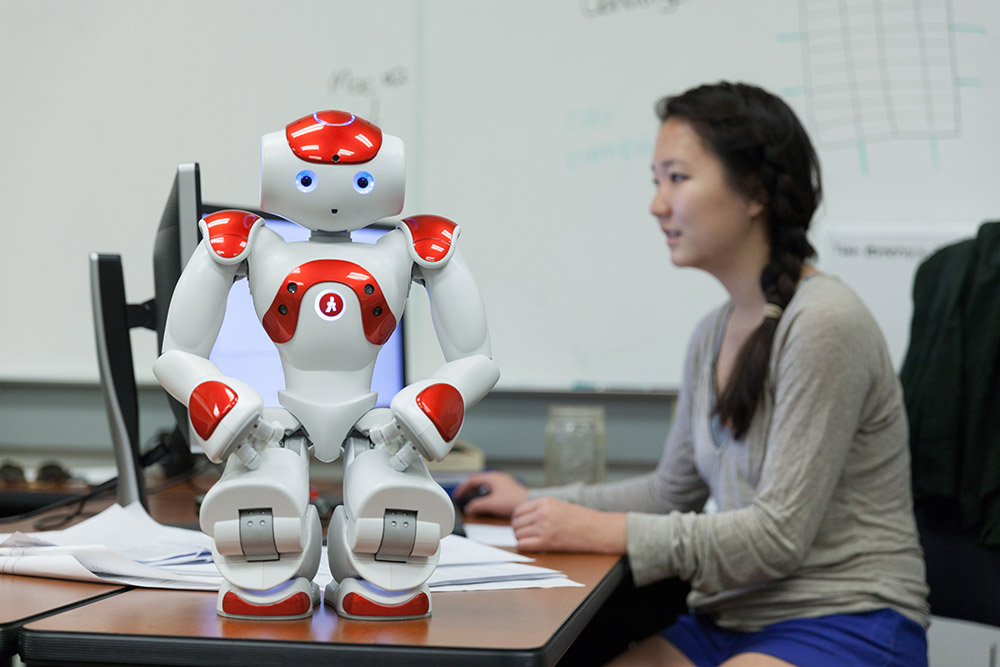Students to Present Human-Robot Trust Research
May 16, 2016
Autonomous robots have become increasingly prevalent in everyday life, from driverless cars and home-assistive robots to unmanned aerial vehicles. As we entrust these robots with more and more autonomy, users must address the notion of whether robots are capable of making trustworthy decisions—research that is currently being conducted in the Harvey Mudd College HEATlab.
HEATlab members Erin Paeng ’17 and Jane Wu ’18 will present this research, titled “Exploring Human-Robot Trust and Cooperation,” at the 2016 Robotics: Science and Systems (RSS) Conference workshop on Social Trust in Autonomous Robots, June 19 at the University of Michigan, Ann Arbor. The conference program is the result of a highly selective review process designed to include the best work of its kind in every category.
In their research, Paeng, Wu and Assistant Professor of Computer Science Jim Boerkoel employ a game-theoretic framework to explore how people trust and cooperate with robots differently than they do with humans. Using a variant of “prisoner’s dilemma” called the coin entrustment game, the team looks to measure trust and cooperation as separate phenomena between human and robot teammates.
“Our experiment confirms that people develop trust faster and to a greater extent with robots than they do with humans in particular game scenarios,” says Paeng.
For instance, participants who played the coin game against a robot report coin maximization as their primary motivator, while those who played against a human were primarily motivated by victory over their opponent. This points to a possible dynamic in interpersonal relationships that is missing from human-robot interactions—the desire for social dominance.
“We would like to extend our explorations to a wider variety of interaction domains,” says Paeng, “to develop a deeper understanding of why such trends emerge.”
The Social Trust in Autonomous Robots workshop will explore notions of human-robot trust from various perspectives through a series of talks and panel discussions—a challenging task due to the cross-disciplinary nature of this research, which includes aspects of sociology, psychology, cognitive reasoning, philosophy, logic and computation.
“Human-robot interaction research is notoriously difficult, because it requires expertise in artificial intelligence, engineering and the social sciences,” says Boerkoel, who began the Human Experience and Agent Teamwork (HEAT)lab in 2014. “The research that Jane and Erin are conducting is a perfect example of how Harvey Mudd is fulfilling its mission to educate engineers, scientists and mathematicians well versed in the humanities and the social sciences with a clear understanding of the impact of their work on society.”
